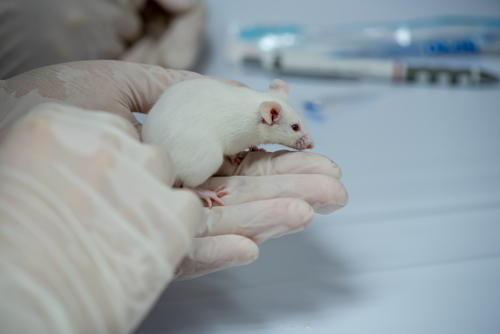Human-derived Antibody Against SOD1 Aggregates Improves ALS Symptoms in Mouse Model, Study Shows
Written by |

A human-derived antibody that specifically binds to abnormal superoxide dismutase 1 (SOD1) improved the symptoms and delayed disease progression in a mouse model for amyotrophic lateral sclerosis (ALS), a study shows.
The antibody, alpha-miSOD1, could be further developed as a candidate treatment for ALS caused by SOD1 misfolding.
The study titled “A human-derived antibody targets misfolded SOD1 and ameliorates motor symptoms in mouse models of amyotrophic lateral sclerosis,” was published in Science Translational Medicine.
ALS is characterized by the death of motor neurons starting at focal points and later propagating throughout the body. Most cases are sporadic, occurring in patients with no family predisposition.
Mutations in different genes, including the one coding for SOD1, lead to familial amyotrophic lateral sclerosis (FALS). SOD1 is an antioxidant enzyme that forms aggregates when not folded correctly. These aggregates can cause toxicity in motor neurons, leading to ALS.
Non-mutated SOD1 can also be misfolded and form aggregates resulting in sporadic ALS, but the mechanisms underlying this process remain unclear.
Antibody therapies that specifically target misfolded SOD1 have shown positive results in mouse models of ALS.
Researchers hypothesized that misfolded SOD1 must be produced in the body of healthy people but that they naturally produce antibodies that target the harmful protein. Therefore, the researchers screened the repertoire of memory B cells (cells that hold our immune system’s memory) of healthy elderly subjects to search for human antibodies that specifically bound misfolded and aggregated SOD1, and generated alpha-miSOD1.
They tested alpha-miSOD1 on postmortem spinal cord samples of 121 patients with ALS (23 with FALS and 98 with SALS) and found that the antibody specifically bound the aggregates of SOD1 present in affected motor neurons, but did not bind to the samples of healthy subjects, or samples of FALS patients that had mutations in other proteins. This showed that the antibody could specifically bind misfolded SOD1 without interfering with the correctly-folded protein.
The investigators tested the effect of alpha-miSOD1 on mice with ALS-like symptoms, either by applying it directly into the brain or injecting it in the peripheral blood and found that “chronic alpha-miSOD1 antibody treatment ameliorated motor symptoms and improved survival in three independent transgenic mouse models overexpressing human mutant SOD1.”
“Treatment with alpha-miSOD1 was efficacious [with the two delivery methods at] doses as low as 3 mg/kg weekly ip, demonstrating that relatively low concentrations of alpha-miSOD1 were sufficient to exert therapeutic effects,” the researchers wrote.
Furthermore, mice treated with alpha-miSOD1 took more time to develop ALS symptoms, had stronger muscles, lost less muscle mass, and had more than twice the functional motor neurons at the last stage of the disease than untreated mice.
“Alpha-miSOD1 . . . ameliorated motor symptoms and improved survival in three mouse models of ALS, supporting its further development as a potential treatment for patients with ALS with misfolded and aggregated SOD1,” the researchers concluded.





